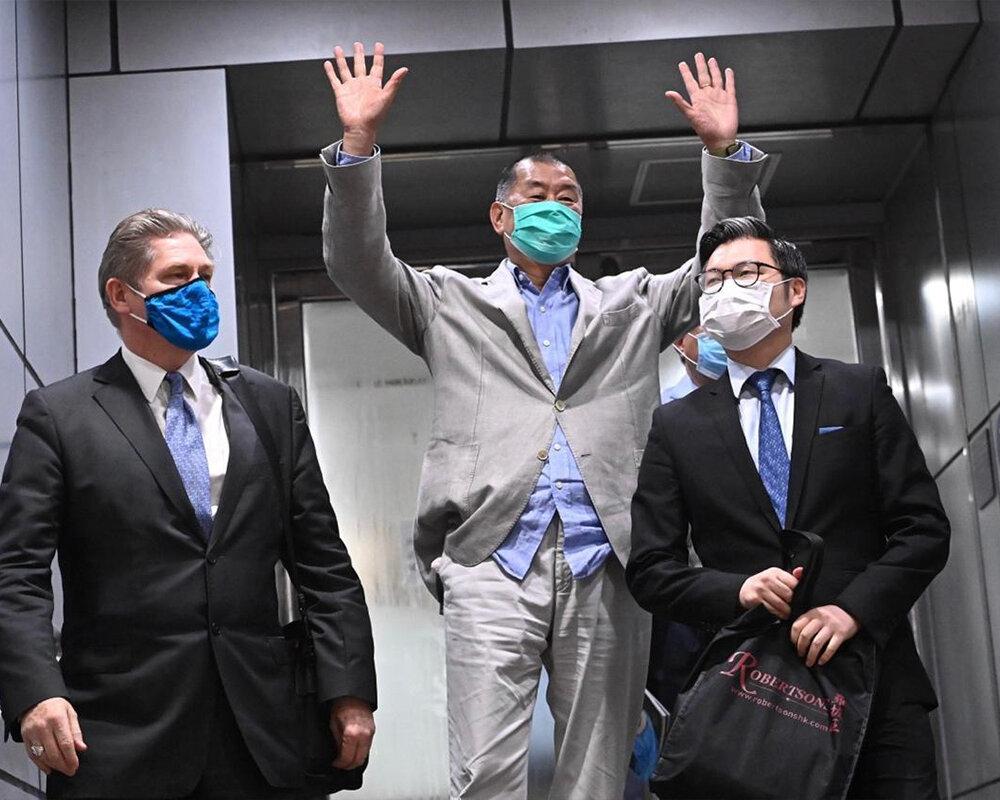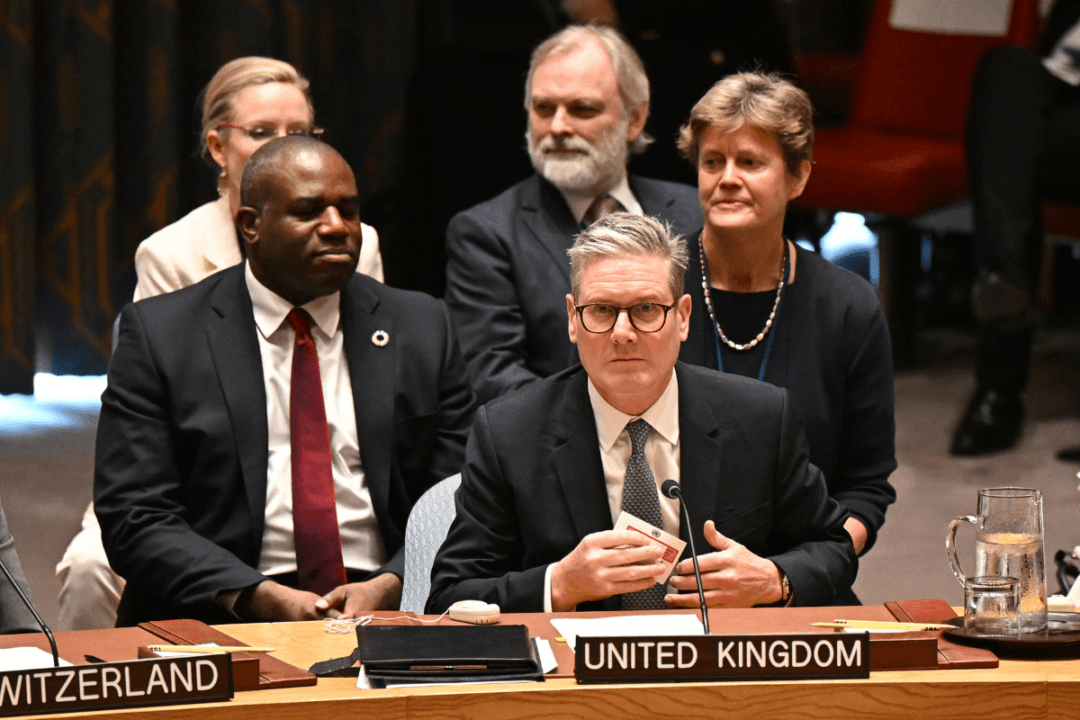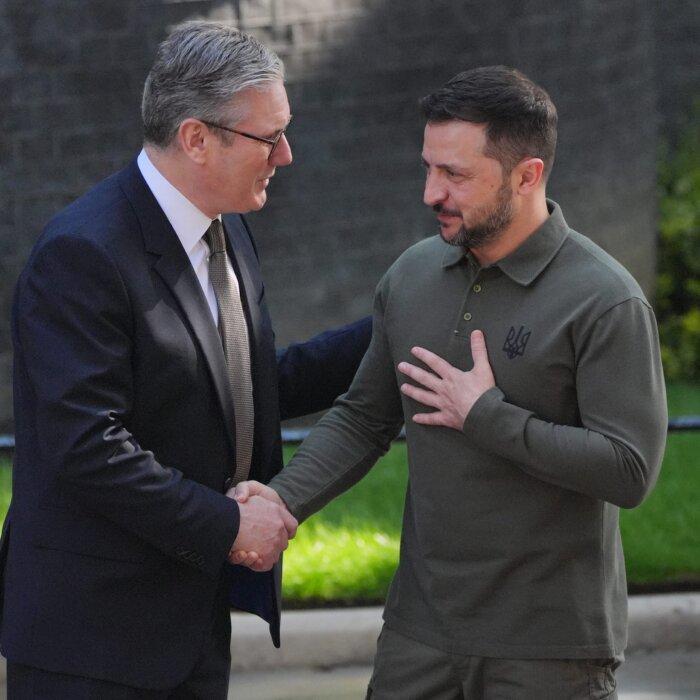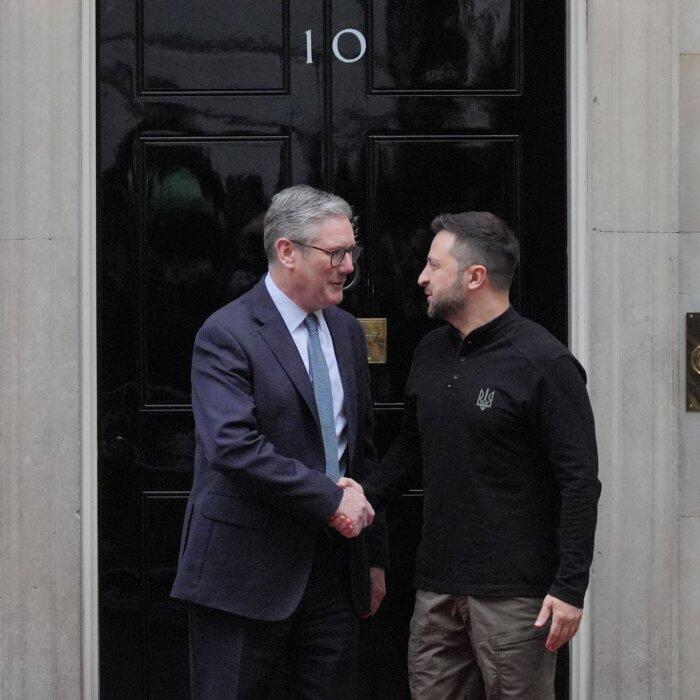Foreign Secretary David Lammy will urge China to stop supporting Russia in the ongoing conflict with Ukraine on a two-day visit this week as the government said it will continue “challenging” the communist country “where we must.”
The visit signals the resumption of high-level diplomatic engagement with China, but Lammy’s trip on Friday comes with the “firm recognition” that London and Beijing “will not, and do not, always agree," the Foreign Office said.
China faces ongoing allegations of human rights abuses against the mainly Muslim Uyghur minority group as well as the unlawful detention of Jimmy Lai, a Hong Kong businessman and democracy campaigner who holds British citizenship.
Concerns were raised in Parliament this week over China’s activities in the Taiwan Strait, in the former British colony of Hong Kong, and in UK universities, as well as its backing of Russia in the Ukraine conflict.
‘Pragmatic’ Approach
The Foreign Office said engagement with Beijing is “vital” owing to its position as a rising global power and that the visit would kickstart a “stable, consistent, and pragmatic approach to China.”Lammy is expected to meet his counterpart Wang Yi in Beijing to discuss not only foreign affairs, but wide-ranging policies around trade and climate.
The Foreign Office said he would also hold talks with British businesses in Shanghai to discuss how economic links with China support growth in the UK.
Speaking ahead of his departure, Lammy said it was important to speak “candidly” about “both areas of contention as well as areas for cooperation in the UK’s national interest.”
“As permanent members of the U.N. Security Council with major global economies, the UK and China are global players. Our relationship matters,” he said.
“Engagement with China is pragmatic and necessary to support UK and global interests.
“From stopping Russia’s illegal invasion of Ukraine, to supporting a global green transition, we must speak often and candidly across both areas of contention as well as areas for cooperation in the UK’s national interest.”

Military Exercises Around Taiwan
Prime Minister Sir Keir Starmer has described the government’s approach towards China as “cooperate where we can ... compete where we have different interests, [and] challenge … where it is needed.”China held large-scale military exercises surrounding Taiwan and its outlying islands earlier this week, which Starmer described as “not conducive to peace and stability.”
Pressed by former Prime Minister Rishi Sunak in the House of Commons on Wednesday, Starmer said, “Stability in the Taiwan Strait is in all of our interests.”
Sunak used Prime Minister’s Questions to accuse China of carrying out “unwarranted, aggressive, and intimidatory military exercises in the Taiwan Strait.”
He added: “Our allies are rightly concerned. After worrying reports that the government may have intervened to stop a visit to the UK by the former Taiwanese president, will the prime minister confirm that the foreign secretary will use his meetings in Beijing this week to condemn China’s dangerous escalatory acts in the strait?”
Sunak added that while he agreed the visit should be used to benefit UK interests, he urged Lammy to “unequivocally condemn this military escalation and stand up for democracy in Taiwan.”
Setting out his wider approach to China, Starmer said: “We will cooperate where we can as permanent members of the U.N. Security Council, on issues such as net zero and health and trade.
“Compete where we have different interests, [and] challenge … where it is needed to protect national security, human rights, and our values. We will put that challenge in.”
The Conservative leader also asked Starmer whether he was prepared to sanction China for selling weapons to Russia, accusing Beijing of being “decisive enablers” of the military action against Ukraine.
Universities a ‘Feeding Ground’
Sunak also asked about Chinese activities within higher education, saying that Parliament’s Intelligence and Security Committee has warned that “British universities are increasingly a rich feeding ground for China to exert political influence over us.”He said the last government had passed the Higher Education (Freedom of Speech) Act in 2023 partly to help defend the UK from the threat from Chinese influence, and said this was now in jeopardy as the new Education Secretary Bridget Phillipson has paused the implementation of the bill.
In a statement ahead of the visit, the Foreign Office said: “UK diplomatic efforts with China will be one of serious, stable and pragmatic re-engagement across the full spectrum of government, prioritising the UK’s national interests.
“This will come with a firm recognition that the UK and China will not, and do not, always agree.
“We have significant differences including on democratic values and freedoms, Hong Kong and support for Russia’s illegal war in Ukraine; but we also have shared interests, including a global green energy transition, and deep economic links, with China including Hong Kong—the UK’s fourth largest trading partner.”







